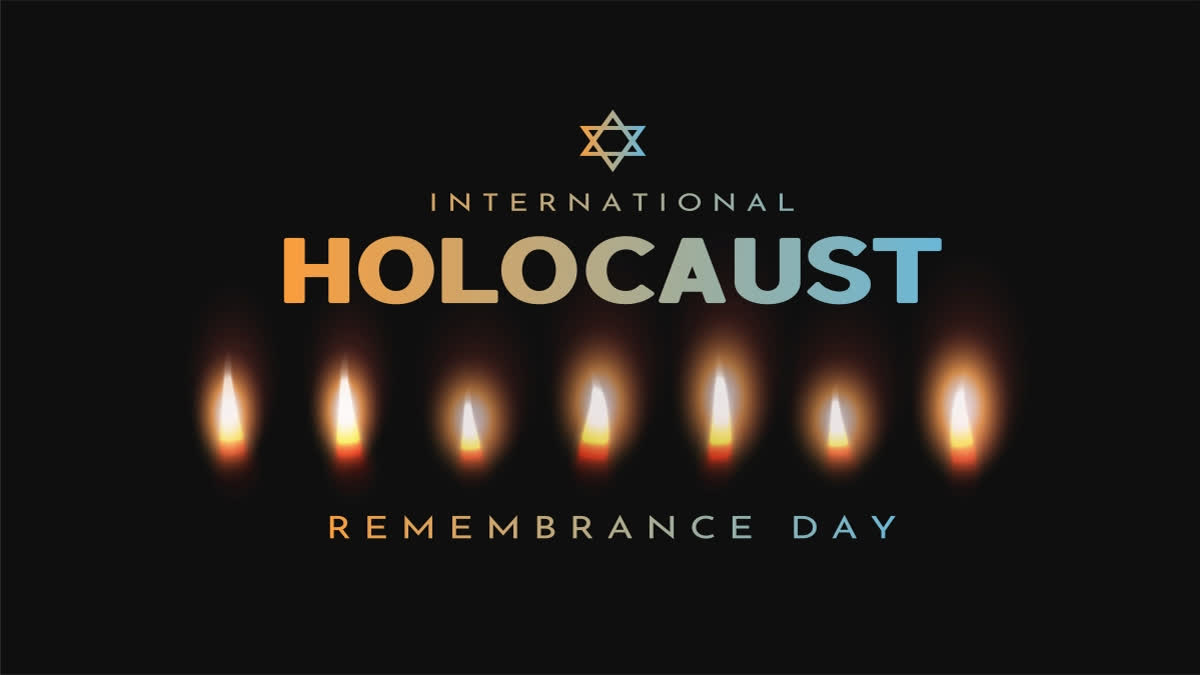The International Day of Commemoration in Memory of the Victims of the Holocaust is observed on January 27th every year. It's a day to remember the victims of the Holocaust and to reflect on the dangers of antisemitism.
The day pays tribute to the memory of the victims of the Holocaust and reaffirms its unwavering commitment to counter antisemitism, racism, and other forms of intolerance that may lead to group-targeted violence.
History of the day:
• January 27, 1945, was the day the Auschwitz-Birkenau concentration camp was liberated. More than one million people were sent to gas chambers and died there during the Holocaust.
• The date marks the anniversary of the liberation of the Auschwitz Birkenau German Nazi Concentration and Extermination Camp by Soviet troops on January 27, 1945.
• In 2005, the United Nations General Assembly Resolution on the Holocaust Remembrance (60/7) designated 27 January as the international commemoration day in memory of the victims of the Holocaust.
Purpose of the day:
The day commemorated to honour all those who endured, along with the millions of Jewish women, men, and children, and all other victims killed by the Nazi regime. In numerous ceremonies throughout Europe and worldwide, their names will be invoked, their lives commemorated.
What was the Holocaust?
The Holocaust was the organised, government-led, oppression and extermination of six million Jews by the Nazi regime and its allies from 1933 to 1945 throughout Europe and North Africa. The peak of the persecution and killing took place during World War II. By the conclusion of the war in 1945, the Germans along with their accomplices had murdered almost two-thirds of European Jews.
The term ‘holocaust’ originates from ancient Greek and signifies ‘burnt offering’. Prior to the Second World War, the term was occasionally employed to refer to the death of a considerable number of individuals, but after 1945, it has nearly become synonymous with the extermination of European Jews during the Second World War. That's the reason we refer to it as 'the Holocaust'. Jews also call it ‘Shoah’, a Hebrew term meaning 'catastrophe'.
Causes of the horrific event:
Antisemitism and backing for Nazism were among the key reasons for the Holocaust. The increase of Antisemitism, the fear or animosity towards Jews, during the early twentieth century, was highly perilous. It enabled a blatantly antisemitic party like the Nazis to rise to power in 1933.
Hitler and the Nazis viewed Jews as a lesser race, aiming to undermine other races and dominate the planet. Hitler viewed Jews as especially harmful to the German 'Aryan' race and asserted they had no role in Nazi Germany.
The Nazis enforced antisemitic legislation that targeted and oppressed Jews, ultimately resulting in their deportation and mass extermination.
The Nazis held the belief that Germans were superior in terms of race. They thought Jews posed a danger to the alleged German racial community. Although Jews were the main victims, the Nazis also pursued other groups for persecution and slaughter.
2025 commemorations:
27 January 2025 will mark the 80th anniversary of the liberation of the Auschwitz Birkenau German Nazi Concentration and Extermination Camp. Over one million people were murdered in this vast complex alone, most of them Jews. In this extensive complex alone, over a million individuals were killed, with the majority being Jews.
In honour of this significant anniversary and the International Day of Commemoration for the Holocaust Victims, UNESCO is hosting a series of events on 23 January to emphasize the ongoing importance of teaching and learning about the Holocaust worldwide.



